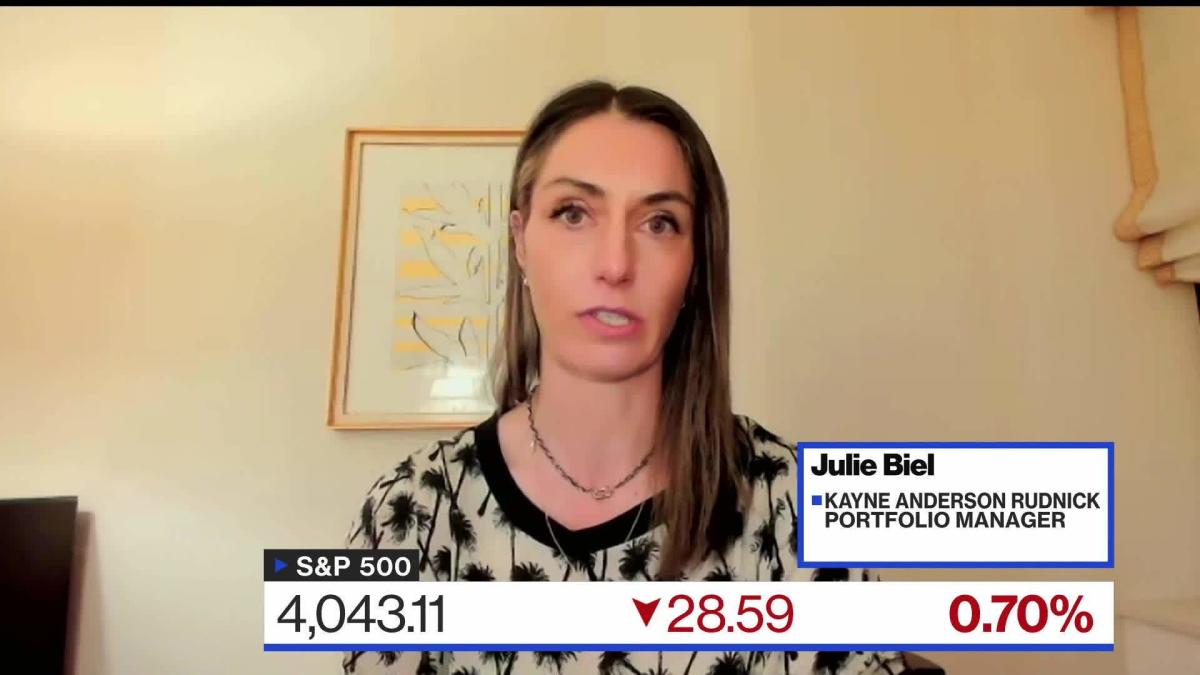- The Supreme Courtroom listened to a free-speech obstacle from a Christian graphic designer based mostly in Colorado.
- Lorie Smith, the proprietor of 303 Imaginative, refuses to develop sites for exact same-sexual intercourse weddings.
- Colorado suggests its regulation forbids discrimination based mostly on sexual orientation.
Lorie Smith, a Christian graphic designer in Colorado, says she would like to mix her like of weddings and storytelling by growing her enterprise to layout wedding ceremony web-sites. But she refuses to create information that she says contradicts her religion, these types of as celebrating same-sexual intercourse weddings, resulting in a lawful struggle that is landed at the Supreme Court docket.
The 38-year-previous is the operator of 303 Inventive, a Denver-dependent graphic structure agency that she’s been managing for far more than a ten years. Smith highlights her faith on her web site and emphasizes that she avoids communicating messages that are “inconsistent with her spiritual beliefs.”
At the heart of the case is a Colorado regulation that forbids companies from discriminating dependent on sexual orientation. Smith statements the anti-discrimination legislation forces her to boost messages she’s versus, violating her Initial Modification no cost speech rights.
“As a Christian, I cannot individual my religion from who I am,” Smith told Insider in a modern job interview. “And so the condition is inquiring me to make artwork to rejoice points that go towards the main of who I am, and no one should really be put in that placement.”
The Supreme Court on Monday read a lot more than two hrs of oral arguments on the dispute, which touched on the intersection of spiritual liberty and LGBTQ+ rights. But the justices are examining the situation via a absolutely free speech lens, addressing the query of no matter if “implementing a public-lodging law to compel an artist to communicate or keep silent violates the No cost Speech Clause of the First Amendment.”
Alliance Defending Flexibility, a conservative lawful group symbolizing 303 Innovative, informed the Supreme Courtroom that Smith serves all varieties of clients, like individuals who discover as LGBTQ+, but that she must not be essential to make sites for exact same-intercourse weddings.
“Ms. Smith thinks opposite-sex relationship honors scripture and same-intercourse relationship contradicts it,” lawyer Kristen Waggoner argued Monday.
The court’s 6-3 conservative majority appeared sympathetic to Smith’s situation. Justice Neil Gorsuch elevated a hypothetical predicament of a freelancer who’s been questioned to create a press release for a group they disagree with, seemingly distinguishing in between a business declining to categorical a information and declining to serve a customer.
“I offer to compose push releases for everyone, it is really not ‘who’, but it is a ‘what,'” Gorsuch reported. “And the ‘what’ is I won’t publish a press release that expresses religious views or that I disagree with.”
The point out of Colorado disputes Smith’s argument, defending that its regulation does not drive any speech, but only involves businesses to provide all Colorado prospects, regardless of their sexual orientation. Lessen courts have sided with the state.
The point out warns that a ruling in favor of Smith could have considerably-achieving implications, enabling enterprises to discriminate not only based on sexual orientation but also most likely on the foundation of gender, race, faith, and disability.
“Our issue is this scenario threatens to build a loophole that firms could deny assistance to someone dependent on who they are, professing some expressive fascination on the behalf of the business enterprise proprietor,” Legal professional General Phil Weiser informed Insider. “That loophole has under no circumstances existed in our regulation before. If you make it, it could do considerable destruction to this important anti-discrimination norm that’s lengthy been a part of Colorado legislation and the federal law.”
The condition on Monday explained to the Supreme Court that 303 Creative’s position is “sweeping” for the reason that it could open the door to enterprises promoting “all types of racist, sexist and bigoted sights.”
“This rule would permit yet another world-wide-web design enterprise to say, ‘no interracial couples served,’ an advert company could refuse ladies-led businesses, and a tech consulting company could refuse to serve 303 Artistic by itself because it disagreed with the owner’s faith,” Colorado Solicitor Normal Eric Olson reported.
“This courtroom should not upend extended-settled regulation that guards the complete and equal obtain of all Individuals to our general public marketplace,” he extra.
The substantial-profile obstacle is reminiscent of a Supreme Courtroom scenario that also arrived out of Colorado yrs ago, when baker Jack Phillips refused to build a marriage ceremony cake for a same-sex couple since of his spiritual beliefs. The justices in 2018 narrowly dominated in favor of Phillips, but failed to confront the absolutely free speech issues that are at stake now.
“It’s surely been a rollercoaster of a journey, but what I’m standing to defend is the appropriate for all to talk freely, whether or not your sights on relationship are comparable to mine or diverse,” Smith told Insider. “That ideal to discuss freely and to live and function regularly with our personal beliefs is critical to a free of charge culture.”
The Supreme Courtroom is expected to hand down its choice in the situation, 303 Imaginative LLC v. Elenis, by June.
- The Supreme Courtroom listened to a free-speech obstacle from a Christian graphic designer based mostly in Colorado.
- Lorie Smith, the proprietor of 303 Imaginative, refuses to develop sites for exact same-sexual intercourse weddings.
- Colorado suggests its regulation forbids discrimination based mostly on sexual orientation.
Lorie Smith, a Christian graphic designer in Colorado, says she would like to mix her like of weddings and storytelling by growing her enterprise to layout wedding ceremony web-sites. But she refuses to create information that she says contradicts her religion, these types of as celebrating same-sexual intercourse weddings, resulting in a lawful struggle that is landed at the Supreme Court docket.
The 38-year-previous is the operator of 303 Inventive, a Denver-dependent graphic structure agency that she’s been managing for far more than a ten years. Smith highlights her faith on her web site and emphasizes that she avoids communicating messages that are “inconsistent with her spiritual beliefs.”
At the heart of the case is a Colorado regulation that forbids companies from discriminating dependent on sexual orientation. Smith statements the anti-discrimination legislation forces her to boost messages she’s versus, violating her Initial Modification no cost speech rights.
“As a Christian, I cannot individual my religion from who I am,” Smith told Insider in a modern job interview. “And so the condition is inquiring me to make artwork to rejoice points that go towards the main of who I am, and no one should really be put in that placement.”
The Supreme Court on Monday read a lot more than two hrs of oral arguments on the dispute, which touched on the intersection of spiritual liberty and LGBTQ+ rights. But the justices are examining the situation via a absolutely free speech lens, addressing the query of no matter if “implementing a public-lodging law to compel an artist to communicate or keep silent violates the No cost Speech Clause of the First Amendment.”
Alliance Defending Flexibility, a conservative lawful group symbolizing 303 Innovative, informed the Supreme Courtroom that Smith serves all varieties of clients, like individuals who discover as LGBTQ+, but that she must not be essential to make sites for exact same-intercourse weddings.
“Ms. Smith thinks opposite-sex relationship honors scripture and same-intercourse relationship contradicts it,” lawyer Kristen Waggoner argued Monday.
The court’s 6-3 conservative majority appeared sympathetic to Smith’s situation. Justice Neil Gorsuch elevated a hypothetical predicament of a freelancer who’s been questioned to create a press release for a group they disagree with, seemingly distinguishing in between a business declining to categorical a information and declining to serve a customer.
“I offer to compose push releases for everyone, it is really not ‘who’, but it is a ‘what,'” Gorsuch reported. “And the ‘what’ is I won’t publish a press release that expresses religious views or that I disagree with.”
The point out of Colorado disputes Smith’s argument, defending that its regulation does not drive any speech, but only involves businesses to provide all Colorado prospects, regardless of their sexual orientation. Lessen courts have sided with the state.
The point out warns that a ruling in favor of Smith could have considerably-achieving implications, enabling enterprises to discriminate not only based on sexual orientation but also most likely on the foundation of gender, race, faith, and disability.
“Our issue is this scenario threatens to build a loophole that firms could deny assistance to someone dependent on who they are, professing some expressive fascination on the behalf of the business enterprise proprietor,” Legal professional General Phil Weiser informed Insider. “That loophole has under no circumstances existed in our regulation before. If you make it, it could do considerable destruction to this important anti-discrimination norm that’s lengthy been a part of Colorado legislation and the federal law.”
The condition on Monday explained to the Supreme Court that 303 Creative’s position is “sweeping” for the reason that it could open the door to enterprises promoting “all types of racist, sexist and bigoted sights.”
“This rule would permit yet another world-wide-web design enterprise to say, ‘no interracial couples served,’ an advert company could refuse ladies-led businesses, and a tech consulting company could refuse to serve 303 Artistic by itself because it disagreed with the owner’s faith,” Colorado Solicitor Normal Eric Olson reported.
“This courtroom should not upend extended-settled regulation that guards the complete and equal obtain of all Individuals to our general public marketplace,” he extra.
The substantial-profile obstacle is reminiscent of a Supreme Courtroom scenario that also arrived out of Colorado yrs ago, when baker Jack Phillips refused to build a marriage ceremony cake for a same-sex couple since of his spiritual beliefs. The justices in 2018 narrowly dominated in favor of Phillips, but failed to confront the absolutely free speech issues that are at stake now.
“It’s surely been a rollercoaster of a journey, but what I’m standing to defend is the appropriate for all to talk freely, whether or not your sights on relationship are comparable to mine or diverse,” Smith told Insider. “That ideal to discuss freely and to live and function regularly with our personal beliefs is critical to a free of charge culture.”
The Supreme Courtroom is expected to hand down its choice in the situation, 303 Imaginative LLC v. Elenis, by June.




